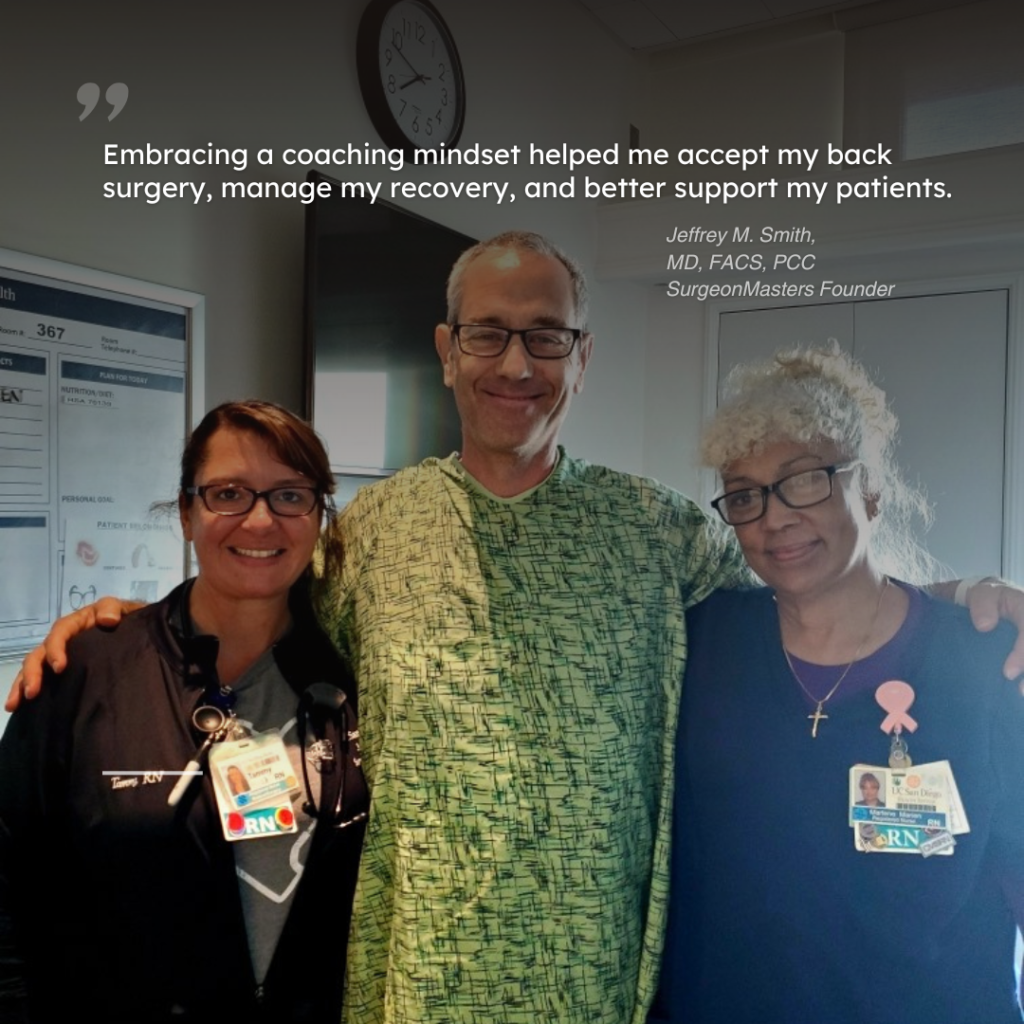Physicians are natural patient advocates—but when it comes to advocating for ourselves, we often struggle. This can be a significant barrier to success, as self-advocacy plays a crucial role in shaping our careers, well-being, and even the healthcare system as a whole. One powerful way to strengthen our ability to advocate for ourselves is by adopting a coaching mindset. By integrating coaching principles into our daily routines, we can shift perspectives, challenge limitations, and take intentional action.
Focus on What We Can Control
We can’t control how others respond, how they feel, or how they act. But we can control our own mindset, decisions, and actions. When we focus on what’s within our power, we gain agency over our circumstances rather than feeling stuck in frustration or inaction. This shift is essential when advocating for change—whether in our careers, our teams, or the broader system.
It’s not always easy. When I’ve been exhausted, overworked, or struggling to recover from the week’s challenges, I’ve noticed how much harder it is to manage frustration, anger, or despair. Over time, I’ve learned to recalibrate my expectations and take control of what I can—my rest and recovery. By prioritizing these, I was able to support my best self and, ultimately, my ability to care for others.
Question Limitations
Barriers to change are often built on limiting beliefs—assumptions about what is or isn’t possible. When we hear phrases like “that’s how it’s always been done” or “the patient comes first,” we have a choice: challenge the status quo or reinforce it. A coaching mindset encourages us to break free from perceived roadblocks and explore new possibilities. What if we approached things differently? What if someone else could provide care when we need to step back?
For me, this realization became clear when I needed back surgery. For years, I held on to the belief that prioritizing my own health over my patients was unacceptable. But when I finally made the decision to have surgery, I became more aware of how breaking free from that mindset allowed me to heal and serve my patients better in the long run.
Create an Active Plan
Awareness is the first step, but advocacy requires action. A coaching mindset helps us turn insights into a strategic, evolving plan. It’s not about rigid solutions but rather an adaptive approach that responds to new information and changing circumstances. Whether advocating for ourselves, our colleagues, or our patients, taking purposeful, consistent steps creates momentum and prevents us from feeling stuck.
Before my back surgery, I developed a recovery plan to get back to doing what I love. Things didn’t always go as expected—I had to adjust on the fly when setbacks occurred—but having a plan gave me direction. The process of advocating for my health wasn’t easy. Progress was slow, and small steps felt insignificant at times. But over time, they added up. By embracing a coaching mindset, I became a stronger advocate for myself and, hopefully, an inspiration to others facing similar challenges.

By focusing on what we can control, questioning limitations, and taking intentional action, we can lead change, overcome obstacles, and build a more sustainable future in medicine—for ourselves and for the profession as a whole.
